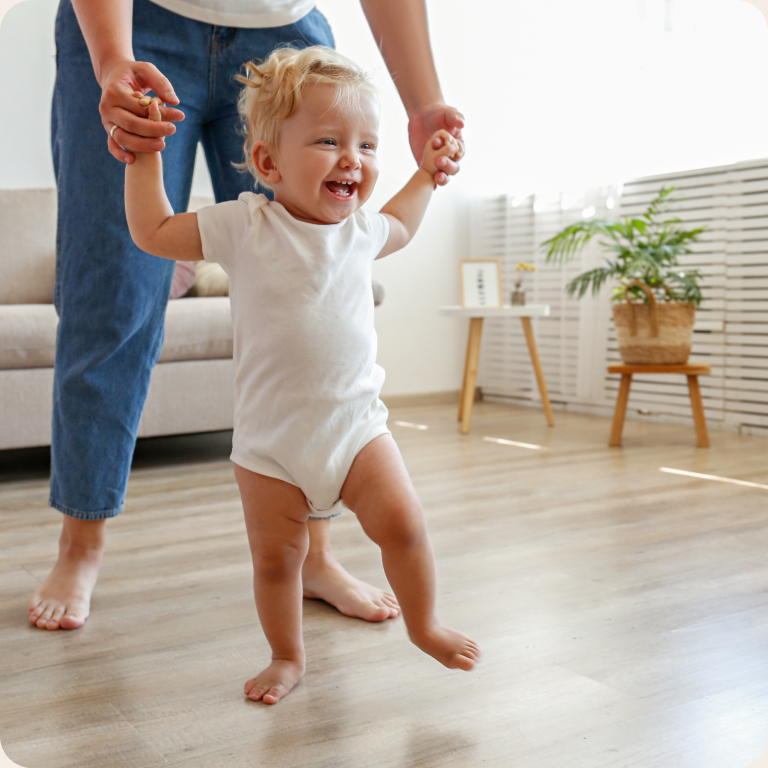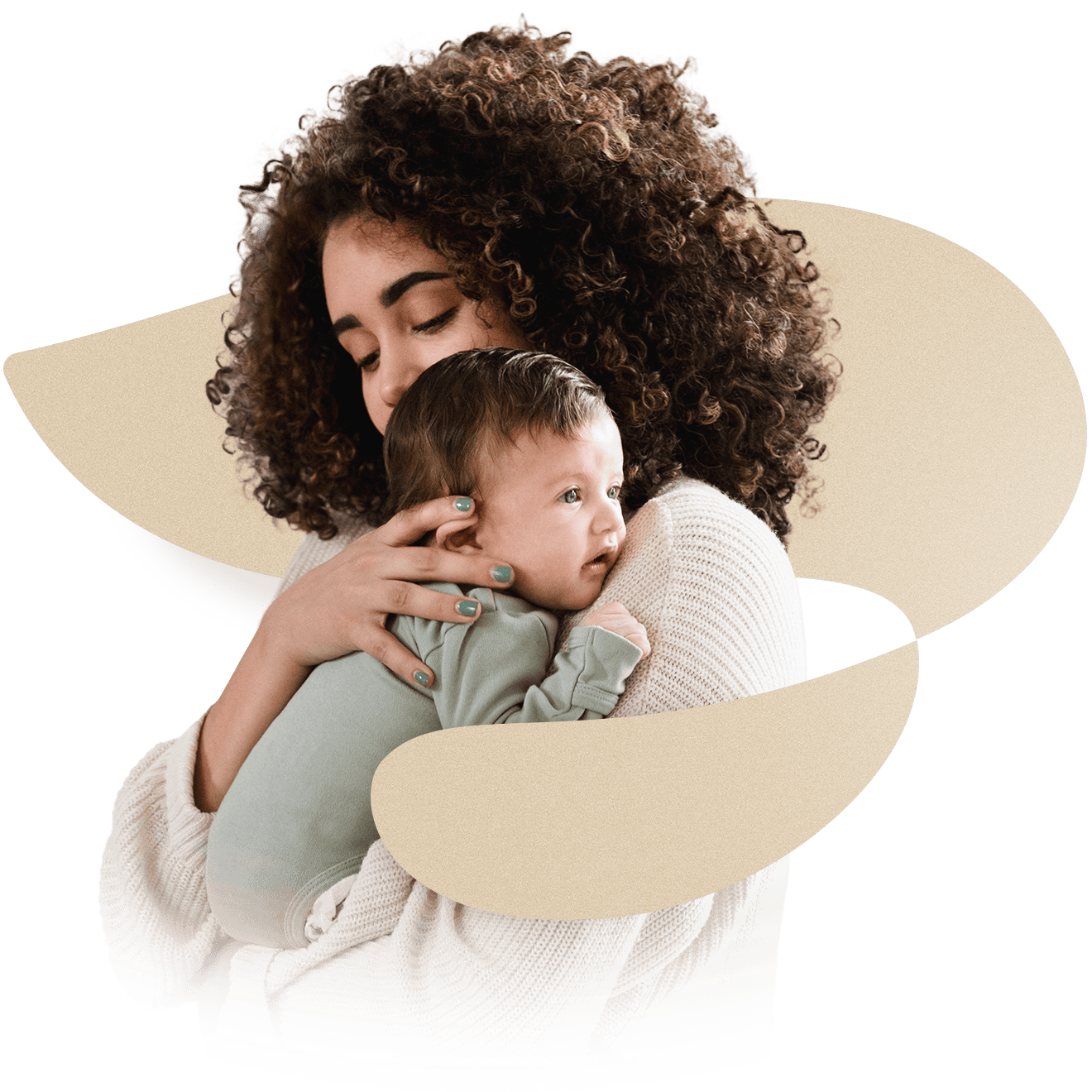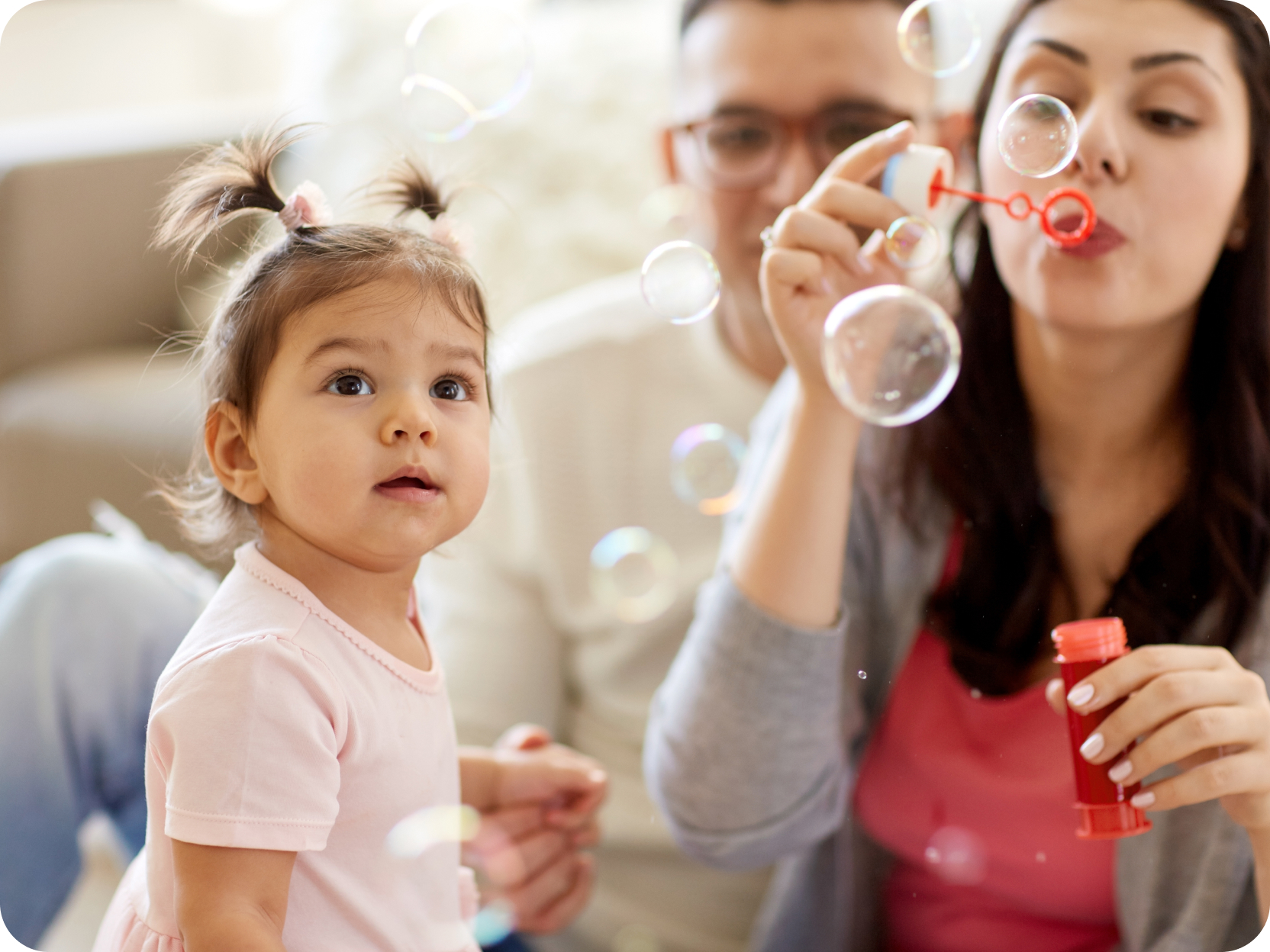
Health Tips
Baby Developmental Milestones — When Do Babies Crawl, Walk, and Talk?
It’s totally normal to wonder if your baby is “on track” — we all want to know our little ones are healthy, happy, and thriving.
Developmental milestones offer helpful markers for how your child is growing, learning, and interacting with the world. They are skills or abilities that most children achieve around a certain age.
Milestones include skills in multiple areas:
- Cognitive skills (problem-solving, learning shapes)
- Language and communication (babbling, first words)
- Motor skills (rolling over, crawling, walking)
- Social and emotional skills (smiling, playing with others)
Checking in on your baby’s developmental milestones can feel exciting but also a bit stressful sometimes. Why isn’t my baby crawling yet? When do babies start talking? How can I help my baby walk?
Instead of strict deadlines, think of milestones as checkpoints within the larger stages of childhood. Every child is unique, and there’s a wide range of what’s “normal.”
Download Guide: Developmental Milestones for Your Baby's First year
Developmental Milestones for Your Baby’s First Year
2-month-old baby milestones
By two months, most babies:
- Look at your face
- Smile when you talk or smile at them
- Make sounds other than crying
- React to loud noises
- Watch you move
- Look at objects, like toys, for a few seconds
- Hold up their head when on their tummy
- Move their arms and legs
- Open their hands briefly
4-month-old baby milestones
By four months, most babies:
- Smile on their own
- Chuckle (not a full laugh) when you try to make them laugh
- Try to get your attention by looking at you, making sounds, or moving
- Make cooing sounds (“ooo” and “ahh”)
- Respond with sounds when you talk to them
- Turn their head toward your voice
- Open their mouth when hungry
- Look at their hands with interest
- Hold their head steady when being held
- Hold a toy in their hand
- Use their arm to swing at toys
- Bring their hands to their mouth
- Push up onto their elbows or forearms when on their tummy
6-month-old baby milestones
By six months, most babies:
- Recognize familiar people
- Like looking at themselves in the mirror
- Laugh
- Make squealing noises
- Take turns making sounds with you
- Blow raspberries (sticking out tongue and blowing)
- Put things in their mouth to explore them
- Reach and grab for toys
- Close lips when done eating
- Roll from their tummy to their. Back
- Push up with straight arms when on their tummy
- Lean on their hands to support themselves when sitting
9-month-old baby milestones
By nine months, most babies:
- Show shyness around strangers (hiding, clinging, or showing fear)
- Show facial expressions, such as happiness, sadness, anger and surprise
- Look when they hear their name
- React when you leave a room (looking for you, crying, reaching)
- Smile or laugh when playing peek-a-boo
- Make sounds like “mamama” and “bababa”
- Lift up arms when they want to be held
- Look for objects that drop out of sight
- Band two objects together
- Sit up on their own and sit without support
- Move things from one hand to the other
- Use fingers to rake food toward themselves
12-month-old milestones
By one year old, most babies:
- Play simple games with you (pat-a-cake)
- Wave their hands
- Call a parent by a special name
- Understand “no” by pausing or stopping
- Put an object inside a container (a block inside a cup)
- Look for things you hide (a toy under a blanket)
- Pull themselves up to standing position
- Walk while holding onto furniture
- Drink from a cup without a lid as you hold it
- Pick up small things between their thumb and pointer finger
What If My Baby Is Behind Developmental Milestones?
A little variation is normal. Sometimes children learn new skills in a different order or at a different pace. For example, your child might focus more on motor skills before language skills.
If your child is lagging in certain milestones, talk with your pediatrician right away. Bringing up concerns early can make a big difference.
Consider talking to your pediatrician if your baby:
- Hasn’t had big smiles or joyful expressions by six months
- Isn’t babbling by 12 months
- Loses previously learned skills at any age
- Shows major differences in muscle tone or movement (very floppy or stiff)
Sometimes, children catch up on their own. Other times, they benefit from a little help. Your pediatrician can connect with appropriate specialists, such as physical therapists, neurologists, speech therapists, psychiatrists or other experts in areas of child development.
Support Your Child’s Healthy Development
By being aware of infant milestones and tracking their progress, you can support their healthy development. The CDC has an app for tracking child development milestones from two months through five years old.
By tracking your child’s progress over time, your pediatrician can spot patterns or changes worth noting. They monitor your child’s development by:
- Asking questions at well-child visits
- Observing your child’s movement, play, and communication
- Using standardized screening tools (like the Ages & Stages Questionnaire)
- Monitoring growth and development over time
Your pediatrician can offer ways to support your child’s development. Everyday activities such as playing, reading, talking, and tummy time all play a part.
You know your baby best, so never hesitate to ask questions or share concerns. Find a pediatrician near you.












